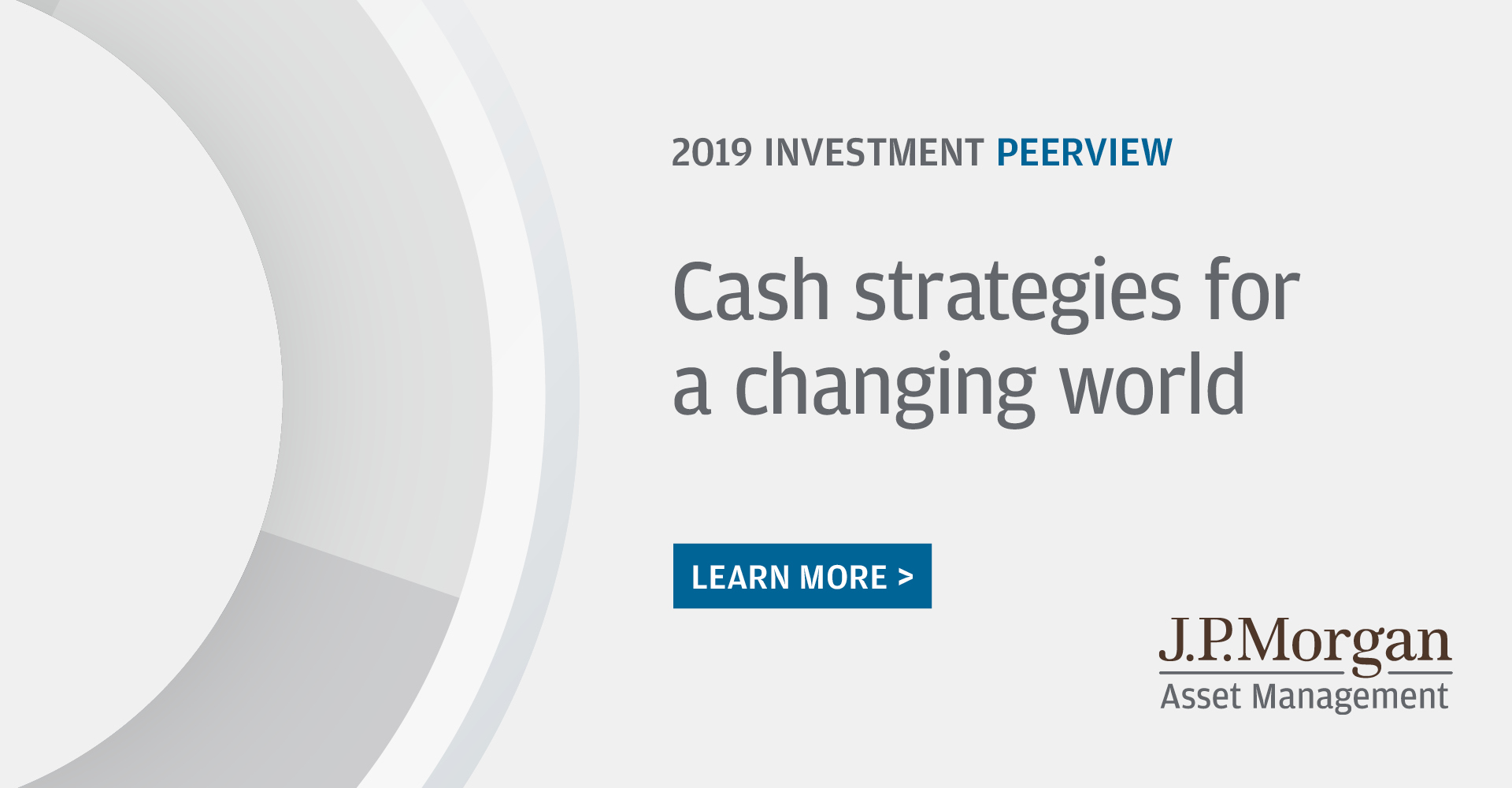

Investors would be forgiven for thinking they are having a rough time right now. In a late cycle economic environment that has ‘change’ and ‘unpredictability’ as its central themes, growth is slowing, trade tensions persist and interest rates remain low.
Against this unsettled backdrop, J.P. Morgan Liquidity Investment PeerViewSM survey takes the pulse and temperature of those at the sharp end of economic activity: the treasurers, CIOs and other cash decision makers from across the spectrum of business sectors and geographies. The survey highlights key trends and allows businesses to compare their cash investment practices with their peers, enabling cash investors to better understand where they are positioned on the continuum of success.
Investment focus
Despite the recent complete regulatory overhaul in the key markets, a notable finding of this year’s survey is that demand for money market funds (MMFs) is still strong. Even as the market outlook evolves, stable/constant/low volatility net asset value (NAV) MMFs are still the most widely permitted investment (in 92% of investment policies).Most survey respondents (75%) say they are planning to maintain their holdings of stable NAV MMFs, based on the market outlook for the coming year.
Overall, firms in the Americas are likely to have a significantly broader scope of investments versus their European and Asia Pacific (APAC) peers. Permitted instruments include MMFs, commercial paper, asset-backed commercial paper, traditional repurchase agreements, corporate debt securities, variable-rate demand notes, asset-backed securities, mortgage-backed securities and municipal notes.
Permitted investments have the potential to evolve fairly rapidly, with almost half of respondents globally reviewing their investment policy at least once a year. Some 62% of APAC respondents review their investment policy more frequently, far higher than in the US (39%) and Europe (48%).
APAC firms are significantly more likely to make changes to their investment policy by adding or removing instruments compared with companies elsewhere. Stable and floating MMFs top the list of instruments APAC investors expect to add (21%); non-rated MMFs top the list of instruments they expect to remove (14%).
When it comes to mitigating the impact of negative interest rates on euro- and/or sterling-denominated investments, term deposits continue to be the most popular investment solution (62%), followed by ultra-short duration bond funds (23%). Willingness to take on more credit risk is limited, with 68% of euro- and sterling-denominated investors saying they have not changed their policies in this area.
Looking at cash flow forecasting, just under half (44%) of firms are able to accurately forecast their cash flows out quarterly or longer. Some 59% of companies in the Americas have this capability, compared with only 36% in APAC.
Other trends
Environmental, social and governance (ESG) investments are gaining ground, with 19% of respondents globally now using ESG criteria to screen their investments, and 25% planning to start doing so within the next two years. Corporate social responsibility topped the list of reasons for factoring in ESG, followed by a need to meet stakeholder expectations. Regulatory pressure had a much smaller effect, except in APAC.
With the need to optimise processes, ensure wider visibility and remove potentially damaging siloes of data, treasury management systems (TMSs) are now used by 61% of respondents. Core financial processes still account for the lion’s share of use, notably cash management and treasury accounting (98%), investments and debt management (67%) and FX and interest rate risk management (50%).
APAC investors are more likely to use systems developed in-house (43%), whereas only 12% in the US and 11% in EMEA do so. This may suggest that either the systems market in APAC is under-penetrated, or that businesses are more prepared to invest in in-house talent.
Finally, in this turbulent year, it is no surprise that cash decision makers are concerned about political risk, with 67% of respondents highlighting it as their top investment challenge. One-fifth of APAC investors consider rising credit risk and default risk in China to be major investment challenges, far more than their counterparts in EMEA and the US. The landscape for cash investors is evolving as rapidly as it has ever done, making it essential to keep up to date with trends and best practices across the industry.
To find out more about this year’s survey results and see how other liquidity investors are positioning their portfolios in today’s uncertain world, visit jpmorgan.com/peerview.